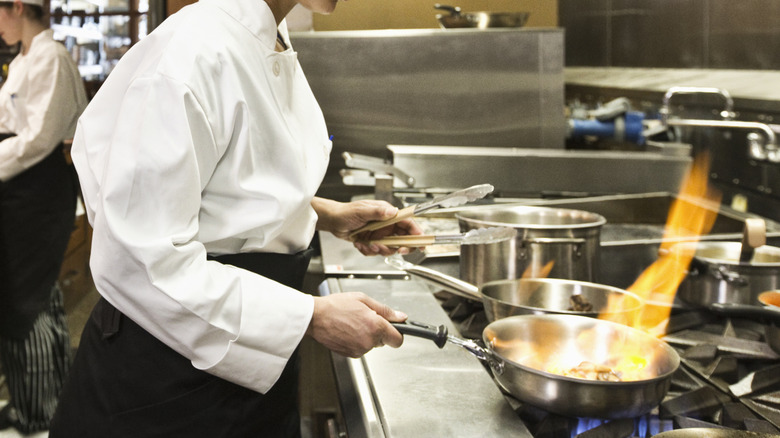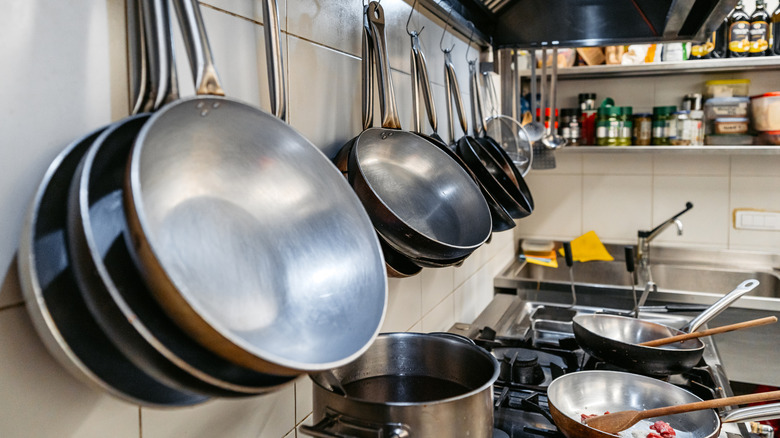Professional Chefs Rarely Use Nonstick Cookware: Here's What They Recommend Instead
For many, nonstick cookware is a staple in the kitchen. It makes cooking easier, clean-up a breeze, and there's plenty of nonstick pan options to pick from. But what may surprise you is that it's not typically found in a professional chef's kitchen. Since nonstick cookware is lined with a coating like Teflon, this makes it extra delicate — which is not a great match for a busy kitchen. A nonstick pan would degrade quickly with high volume use, making it cost-inefficient compared to a more durable material.
Whether it's to sear, stir-fry, or brown, chefs also often cook on high heat, which is something you should never do with nonstick cookware since it can potentially release harmful fumes. Not to mention, the nonstick layer prevents the pan from heating up quickly — and in a professional kitchen, every minute counts. Lastly, the browned bits from cooking don't develop as much on nonstick cookware, which can seriously impact the flavor of restaurant dishes.
Which cookware professional chefs use instead
If you want to take a page out of a chef's book, stick to cookware made from stainless steel, aluminum, or copper. Stainless steel is perfect for reaching high temperatures — and with the right technique, you can achieve a similar nonstick effect without the coating. The key is to heat the empty pan for a few minutes before adding a droplet of water; if it beads up and dances across the surface, you're ready to cook. Stainless steel is also non-reactive, which makes it safe for cooking acidic foods like tomatoes.
When it comes to more even heat distribution, aluminum is a great alternative. This is also a more affordable option, making it a common choice for many restaurants. However, aluminum is a softer material, so it can scratch easily if used with metal or harsh utensils — meaning it requires a little more care.
Copper cookware is used in higher-end restaurants (and was exclusively used by Julia Child), due to its more expensive price tag. Copper is great for quick and even heating, giving chefs precise temperature control. But because copper is reactive to acidic foods and requires a lot of maintenance, it's not always the most practical choice. Of course, the requirements of a professional kitchen and your own might differ, but if you want to cook like a pro, stainless steel, aluminum, or copper might be cookware that's worth investing in.

